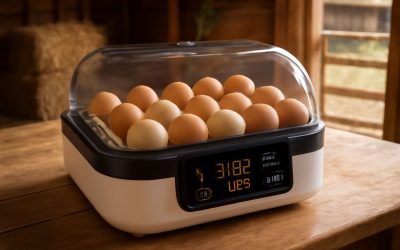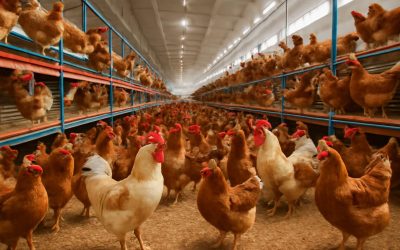An egg incubator machine is an invaluable tool for anyone raising eggs from chickens, ducks or geese. It helps keep your eggs at the ideal temperature and humidity and prevents them from drying out, making it easier for chicks to develop and hatch. It also allows you to see exactly what’s going on inside your eggs, which is helpful for monitoring the development of your baby chicks.
Incubators come in a variety of shapes and sizes, with each having its own pros and cons depending on what kind of eggs you want to hatch and your needs. A basic incubator may be enough for most people, while a more expensive model will have more features and will provide you with more peace of mind.
The best incubators will have automatic controls, allowing you to easily monitor your environment. These will help you set the correct temperature, humidity and ventilation for every stage of the incubation process.
They will often have an alarm to warn you if the incubator is going over or under your predetermined safe zone, letting you intervene before things start to go south. They will also typically have a display that lets you see the current temperature and humidity, which is helpful for monitoring the development of the chicks.
Some incubators will also have a turner that will automatically turn the eggs a certain number of times during the incubation period to help keep the developing embryo in the center of the egg, which is important for preventing it from sticking to the shell. An automatic turner will save you a lot of time and effort, while ensuring that your eggs are turned properly to avoid any issues during the incubation process.
If you have an automatic turner, it is recommended that you turn the eggs three times per day to maintain the proper egg temperature for optimal incubation and egg hatching. Be sure to turn the eggs carefully, as the embryo may be damaged if the eggs aren’t turned correctly.
Before placing eggs in an incubator, ensure that the eggs are clean and sanitized. Wash with a warm water and soap solution and rinse thoroughly with a disinfectant solution. This will eliminate germs and other potential contaminants from the eggs, which can cause disease or reduce your chick’s chances of hatching.
Store the eggs in a cool-humid storage area, with the pointed end of the egg pointed downward and preferably in a box or other container. This is especially important if the weather is hot and humid, as moisture condensation on the egg shell can lead to reduced hatchability.
Hatchability holds up reasonably well for up to 7 days, but decreases rapidly afterward. This is because the egg shell becomes too warm and causes moisture condensation on the inner surface of the egg. Keeping the egg at a temperature of 55 degrees F will minimize this problem.
If you have a basic egg incubator, you can use a candle to test the hatchability of the egg. This will allow you to identify whether the egg is fertile or not, and will help you to decide what to do next.



0 Comments